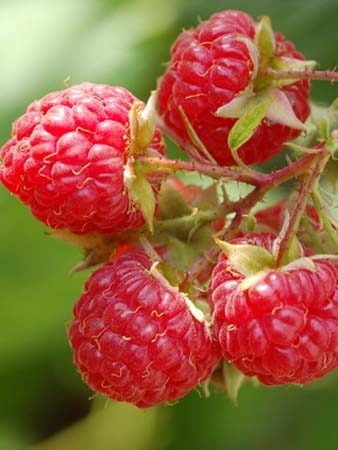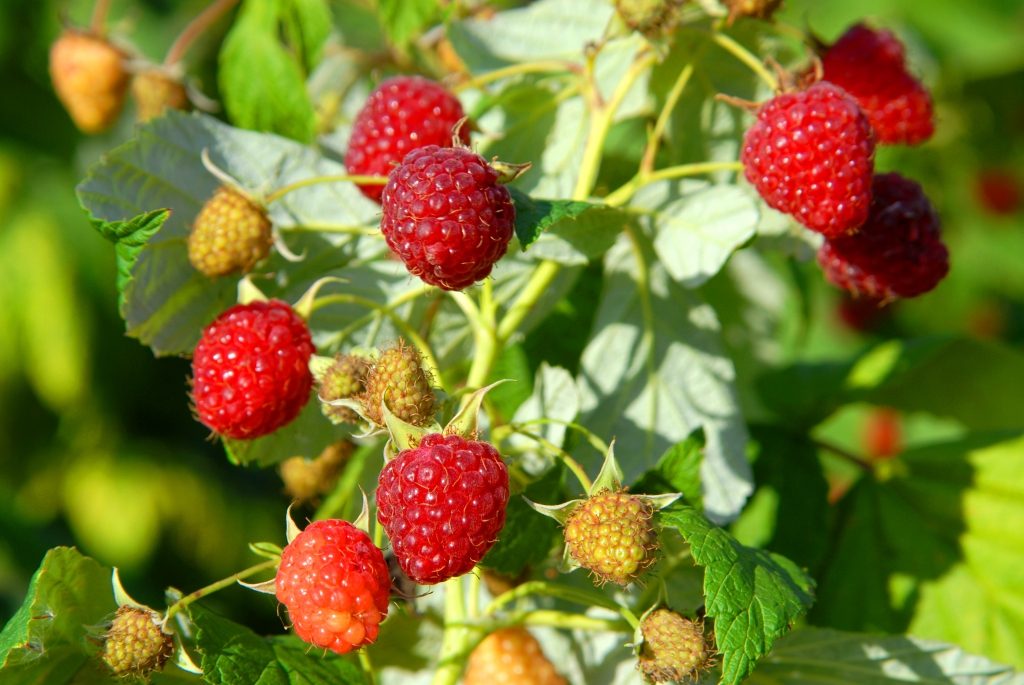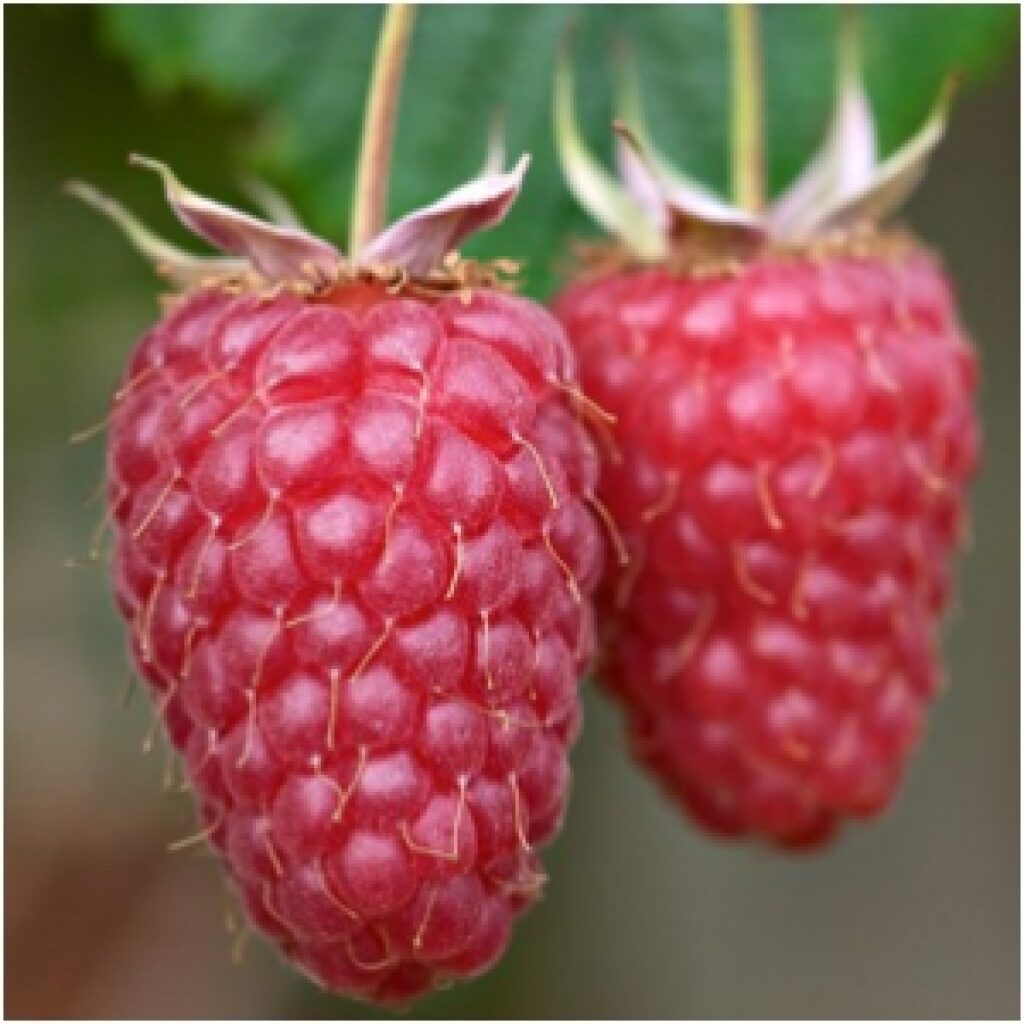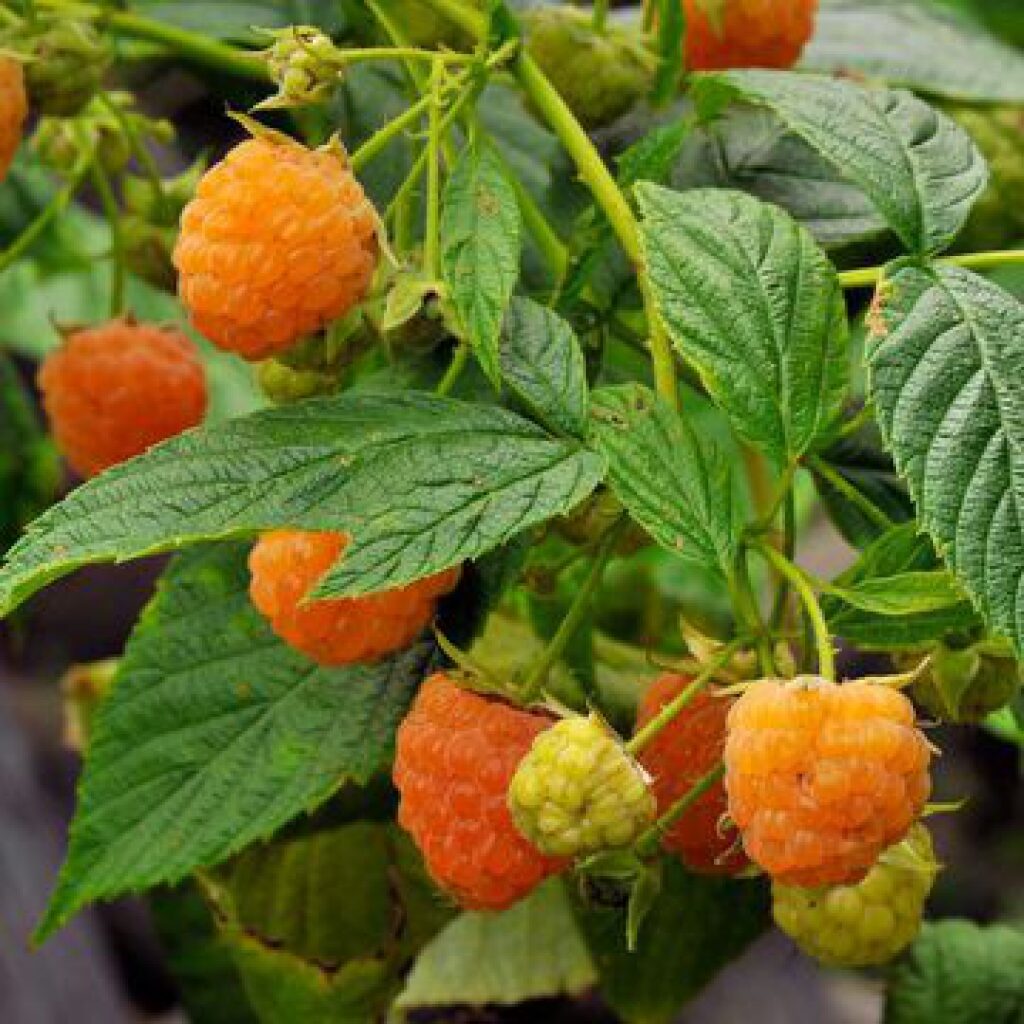Nothing beats wandering through the garden on a warm summer’s day and enjoying fresh berries right from the vine (or cane to be precise.) Here are 4 easily grown Raspberries that will add flavor to your life year after year.

Willamette (Rubus idaeus ‘Willamette’)
Large deep red flavorful fruit that is great for freezing, eating or juice. Blooms April-May followed by late season fruit. Full sun. Ht. 6ft. Zone 5

Heritage (Rubus idaeus ‘Heritage'[Red Raspberry])
Everbearing raspberry that produces a moderate crop in early summer followed by a heavy crop in fall. Prune out early summer bearing canes after fruiting. Ht. 5ft. Zone 4

Coho (Rubus ‘Coho’ [Coho Raspberry])
A floricane fruiting raspberry with high yields of late-ripening large, bright red berries. A summer treat right out of the garden! Ht. 6ft. Zone 4
(Floricane: a plant stem that grows for a year before bearing fruit and flowers.)

Fall Gold (Rubus idaeus ‘Fallgold'[Yellow Raspberry])
Everbearing raspberry with golden orange berries. Produces a moderate crop in late spring to early summer followed by a heavier crop in late summer to fall on the same cane. Ht. 4ft. Zone 3
You may be wondering what the difference is between summer-bearing and everbearing raspberries.
Summer-bearing raspberries produce a single crop on canes from the previous year. Once the fruiting is over, the canes that produced berries have completed their life cycle and are should be down to the ground, leaving the new canes that emerged in the spring to develop.
Everbearing are sometimes called “fall bearing” because their larger harvest usually comes in late summer and early autumn at the top of canes produced in the same year. In the following summer, these same canes bear more berries, lower down on the canes. They don’t actually produce berries all the time.
Once the canes have produced that second, early summer crop, they have completed their life cycle and are removed. Meanwhile, newly produced canes will give a late summer and autumn crop on the cane tops.
For simplicity, some people grow “everbearing” raspberries as single-season canes, going for the late crop only. That involves simply cutting all the canes down to the ground in late fall or early winter.
